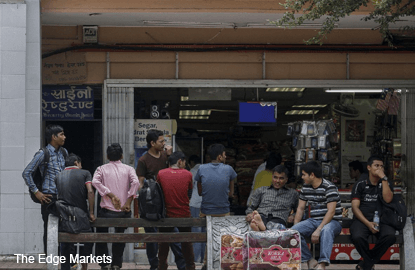
This article first appeared in The Edge Malaysia Weekly, on February 8 - 14, 2016
THE government’s sudden move to increase the annual levy on foreign workers following the announcement of the revised 2016 budget has, unsurprisingly, caused an uproar among employers who rely heavily on migrant labour.
The levy hike of 100% to 300%, depending on the sector, became effective on Feb 1. It is expected to add RM2.5 billion to the government’s coffers. Deputy Prime Minister Datuk Seri Ahmad Zahid Hamidi was quoted by the media as saying that the increase should be seen as a positive move to reduce the country’s dependence on foreign labour.
The chief complaint of employers is that the hike came too suddenly and is too steep. A levy of RM2,500 is now imposed on each foreign worker in the manufacturing, construction and service sectors while the plantation and agriculture industries are being charged RM1,500 per foreign worker.
Previously, planters had paid a levy of RM590 for each foreign worker, which translates into a 154% increase based on the new fees.
There is no doubt that the levy hike is a quick way to fill the government’s coffers, given that there are over two million legal foreign workers in Malaysia. However, would the steep increase translate into higher inflation for the nation?
Details about the hike are sketchy at the present time. There has been no formal notification of whether the employees will have to fork out the new levy or the employers will have to absorb it.
United Overseas Bank (M) Bhd economist Julia Goh opines that consumers usually bear the brunt of levy increases as businesses tend to pass on the cost whenever they can. This may result in higher prices and, in turn, higher inflation.
Bank Negara Malaysia governor Tan Sri Dr Zeti Akhtar Aziz was reported as saying that after the budget revision, inflation in the first quarter of this year will likely be above 4% as a result of the adjustments to prices from the Goods and Services Tax and the subsidy rationalisation. She expects the overall inflation to be around 2.5% to 3.5% throughout the year.
However, given the current challenging economic environment, businesses may not be able to pass all the additional costs to consumers and would have to contend with a cut in their bottom line.
“This could lead to some cost-push inflation but overall price increases are likely to be capped by weaker demand this year,” says Goh.
Dr Yeah Kim Leng, who is the dean of the School of Business at Malaysia University of Science and Technology, concurs, saying that given the strong reliance on migrant workers in some industries, it is likely that there will be a reduction in profit margins for some businesses.
“Judging by the size of the migrant workforce in Malaysia, there could be many who will not be able to cope with the increase in cost,” he adds.
Nevertheless, RHB Research Institute economist Peck Boon Soon thinks that the potential cost-push inflation, as a result of the levy hike, will not be a major issue and believes that the impact on inflation will be muted.
Save by subscribing to us for your print and/or digital copy.
P/S: The Edge is also available on Apple's AppStore and Androids' Google Play.